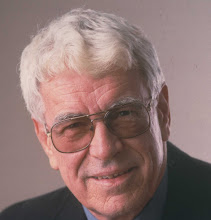December 21, 2008
I wish you a Merry Christmas. And a Happy New Year. I really do.
But what would make Chistmas merry, and New Year's happy? Good question. Two-thirds of Americans apparently dread the holiday season, because it will simply add more stuff to their lives. Christmas gifts have become the social equivalent of anti-matter. Far from delighting the recipients, Christmas gifts depress them.
I stumbled across this information in Bill McKibben's provocative book Deep Economy: The Wealth of Communities and the Durable Future. In it, McKibben asks a simple question: “Is more better?” Do objects and possessions really make us happy? If not, then why pursue “economic growth,” which really means the creation of still more objects and possessions?
These are heretical questions – particularly to economists, whose odd semi-science rests on the assumption that we can tell what makes you happy (or “maximizes utility,” in econo-speak) by looking at how you spend your money. Economics assumes that people are rational and make rational choices. If you're buying a leaf blower, then, presumably you've judged that of all the things you could possibly be doing at this moment, buying a leaf blower is the most satisfying.
Buying stuff makes you happy. The more stuff you can buy, the happier you'll be. That's the fundamental assumption of economics.
But it's not so in the real world. In 1991, McKibben reports, “the average American family owned twice as many cars, drove two and a half times as far, used twenty-one times as much plastic, and traveled twenty-five times farther by air than did the average family in 1951.” The economy had tripled since 1950, and the size of new houses had doubled since 1970.
So those families were two or three times as happy, right?
Wrong. The proportion of Americans who say they are happy has slipped steadily since about 1950. In all the industrialized countries, increasing prosperity has been accompanied by decreasing happiness. Japan and the UK have seen huge increases in per capita incomes, but no increases in happiness. The New York Times reports that people born in the world's wealthiest countries after 1955 are “three times as likely as their grandparents to have had a serious bout of depression.” Between 1955 and 1988, British national income rose sharply – and so did rates of crime and divorce.
And we have so much junk that a whole new industry has arisen to take care of it. One of the fastest-growing businesses in North America is self-storage.
Another whole series of studies has come at this question backwards, asking people to describe the factors that contribute to a high quality of life. About 70% give great weight to such intangibles as family life, equality, recreational opportunities, job satisfaction. The best predictors of happiness include robust health and a good marriage. Money and possessions rank very low.
So how did we get mesmerized by the notion that happiness comes from steadily rising incomes and a steadily expanding economy?
Because it's true – but only to a point. Money and possessions do bring happiness – but (says the research) only up to about $10,000 per capita. That's $40,000 a year for a couple with two kids, enough to provide decent shelter, an adequate diet, all the basic amenities of life. Beyond $10,000 per capita there's no reliable correlation between money and happiness.
But our perceptions haven't caught up with reality. We've become rich, but we behave as though we were still as poor as the novelist Hugh MacLennan, growing up in Glace Bay during World War I. One of his most beautiful stories, “An Orange from Portugal,” conveys his joy and wonder at the sight of a single fresh orange at Christmas.
We need a new way to celebrate Christmas, a fresh tradition that recognizes the deeper needs of affluent people. We don't need more stuff. We need time with beloved people, silence for spiritual reflection, engagement with art, connection with nature.
I wish you a Merry Christmas. And a Happy New Year. And the wisdom to seek happiness not in the malls and the big-box stores, but in places where it can actually be found.
-- 30 --
Sunday, December 21, 2008
'Tis the Season...
Labels:
Bill McKibben,
Christmas,
economic growth,
economics,
happiness,
possessions,
storage
Subscribe to:
Post Comments (Atom)

No comments:
Post a Comment